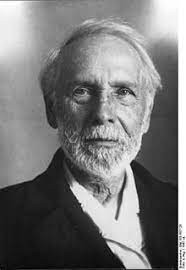Vierkandt, Alfred

Bio: (1867-1953) German sociologist, philosopher, ethnologist, and social psychologist. Alfred Vierkandt studied at the University of Leipzig, where he received his doctorate in 1892. He began his academic career at the University of Berlin in 1900, and from 1921 he was the head of the newly established Department of Sociology at the same university. After the Nazis forbade him to teach, he was forced to retire in 1934. From 1946 he taught again at the University of Berlin. In the first period of his scientific work, Vierkandt engaged in anthropological, sociological, and psychological research on culture and cultural change, and the result is the books Primitive Nations and Civilized Nations (1896) and Consistency in Cultural Change (1908). Vierkandt is one of the founders of formal sociology, which according to him represents the transition from the sociology of facts to the sociology of ideas, and those ideas, man's innate types of sociability, according to him, should be the subject of sociology. The fruit of this teaching is the book Sociology / The Study of Society: The Main Problems of Philosophical Sociology (1923a), in which he used the phenomenological method.
Fields of research
Anthropology Crisis Culture Ethnicity Family History Law Power, Political Psychology StateTheoretical approaches
Formal SociologyMain works
Naturvölker und Kulturvölker: Ein Beitrag zur Socialpsychologie (1896);
Die Stetigkeit im Kulturwandel: Eine soziologische Studie (1908);
Allgemeine Verfassungs- und Verwaltungsgeschichte (1911);
Machtverhältnis und Machtmoral (1916);
Staat und Gesellschaft in der Gegenwart: Eine Einführung in das staatsbürgerliche Denken und in die politische Bewegung unserer Zeit (1916);
Gesellschaftslehre: Hauptprobleme der philosophischen Soziologie (1923a);
Der Dualismus im modernen Weltbild (1923b);
Der geistig-sittliche Gehalt des neueren Naturrechtes (1927);
Allgemeine Verfassungs und Verwaltungsgeschichte (1928);
Handwörterbuch der Soziologie (1931);
Familie, Volk und Staat in ihren gesellschaftlichen Lebensvorgängen: Eine Einführung in die Gesellschaftslehre (1936);
Kleine Gesellschaftslehre (1949).

